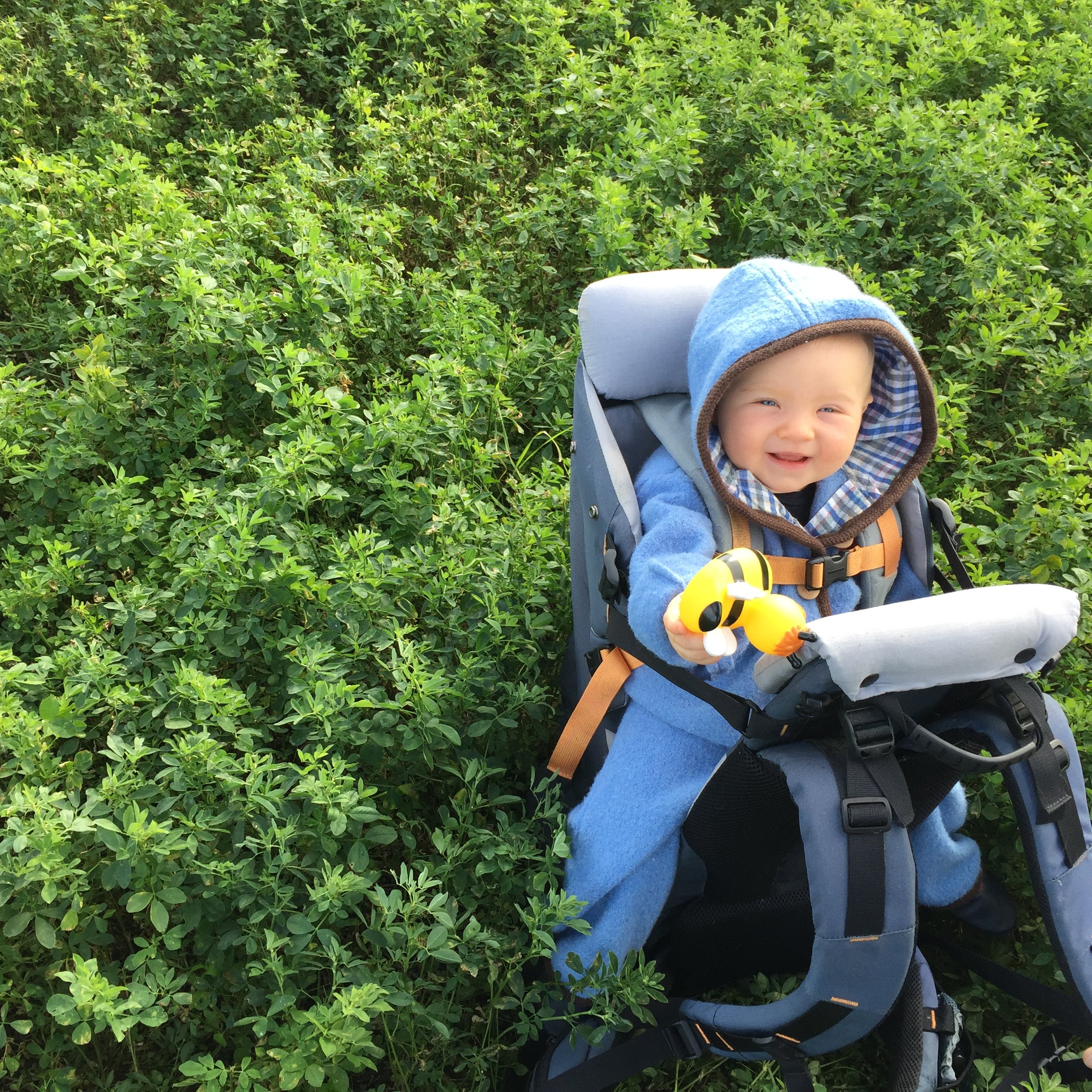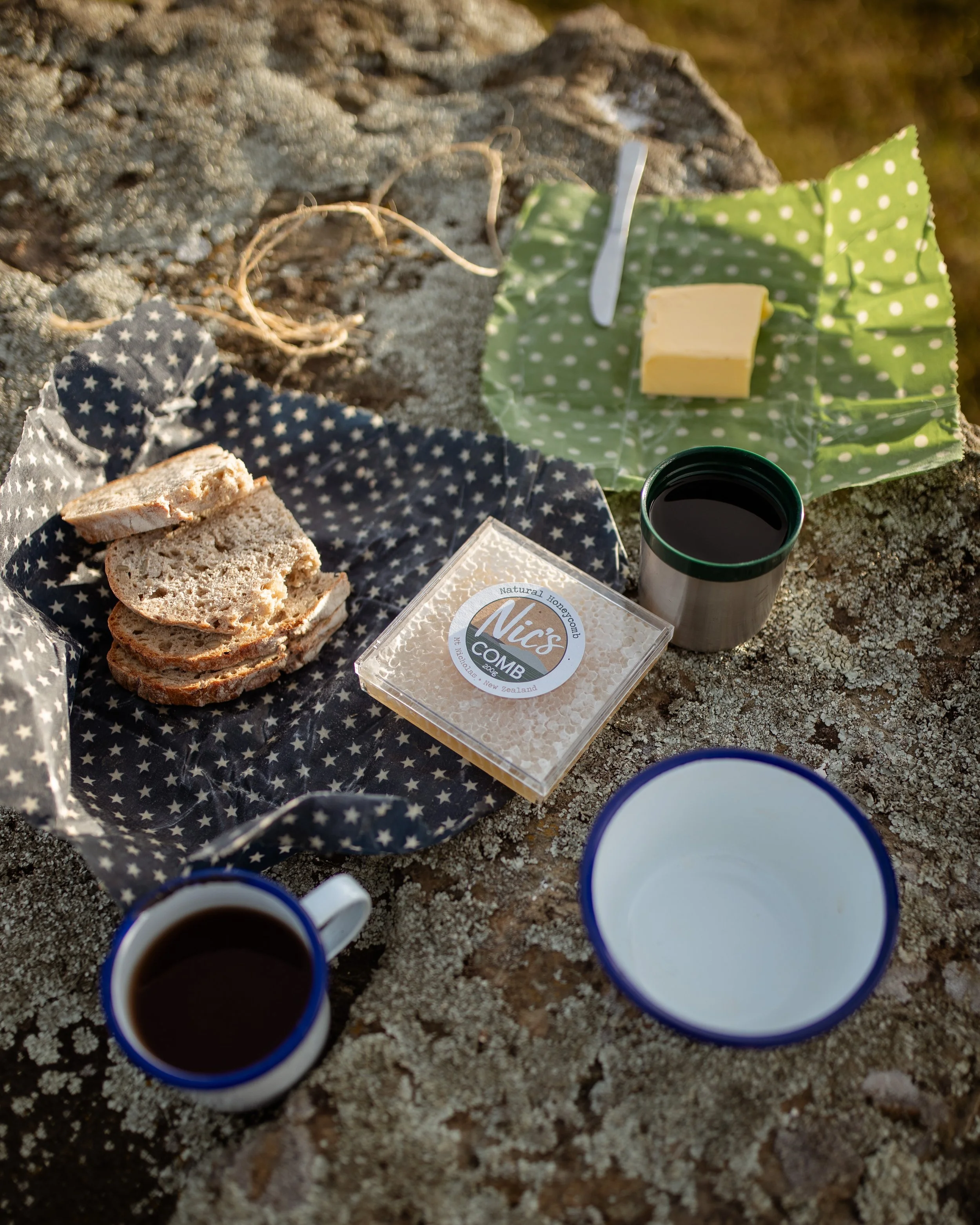Why Bees Are Vital to Mt. Nicholas High Country Station and Beyond
Nestled in the heart of New Zealand’s breathtaking high country, Mt. Nicholas Station is home not only to sheep and cattle but also to thousands of busy, buzzing bees. While the pristine beauty of Lake Whakatipu and the rolling high-country hills are what most visitors see, behind the scenes, bees play an essential role in the health of our land, our crops, and even our business.
At Nic’s Honey, we celebrate these incredible pollinators for their tireless work, not just in making our delicious honey, but in supporting everything that grows on Mt. Nicholas Station.
Mt. Nicholas Station set against the backdrop of Lake Wakatipu
Pollination for Native Plants
The high country is rich with unique native plants, many of which rely on bees for pollination. From delicate alpine wildflowers to resilient tussocks, bees help these plants reproduce, contributing to the biodiversity that defines our region. Without pollinators like bees, these native species would struggle, impacting not just the plants themselves but the entire ecosystem that depends on them.
New Zealand Burr
Boosting Pasture Health
While sheep and cattle roam the expansive station, the plants they graze on indirectly benefit from bees. Bees pollinate the flowering plants that grow alongside the grasses, ensuring a diverse range of vegetation across the pastures. A variety of plants means richer soil, healthier livestock, and a more balanced ecosystem overall. It’s a cycle that bees keep in motion.
Lotus Major
Creating Our Unique Honey
Here at Nic's Honey, we’re passionate about producing honey that captures the essence of our high country home. Our bees forage on the untouched wildflowers and Manuka that grow across Mt. Nicholas, creating honey that is as pure and distinct as the land itself. Every jar of Nic’s Gold Manuka and Wildflower Honey tells a story of our station’s natural beauty and the hardworking bees that make it possible.
Nic's Honey
Supporting Sustainable Farming
Bees don’t just help plants grow—they also help us keep our farming sustainable. By promoting healthy pastureland and reducing the need for artificial inputs like fertilizers, bees contribute to a natural, eco-friendly approach to farming. As we work to care for our land, bees are crucial partners in ensuring its long-term health and productivity.
Lucerne paddock
Better Crops, Better Food
Whether you’ve visited our station or simply tasted our honey, you’re enjoying the benefits of bee pollination. If you’ve ever picked fruit from an orchard or harvested vegetables from a garden, bees have likely played a role. Their pollination work results in better yields and tastier, more nutritious food—not just here at Mt. Nicholas but on farms all around the world.
Mt. Nicholas Orchard - Peach Tree
The Importance of Protecting Bees
Bees are more than just honey producers—they’re vital to our entire ecosystem. As part of our commitment to sustainability and environmental stewardship at Mt. Nicholas Station, we work hard to protect our bee populations. From providing safe habitats to minimising the use of harmful chemicals, we believe in doing everything we can to keep our bees healthy.
Bringing You Closer to Nature
At Nic's Honey, we want to bring a little bit of Mt. Nicholas to you, wherever you are. Our honey is more than just a sweet treat—it’s a connection to the natural world, to the bees that make it, and to the sustainable practices that keep our land thriving.
So the next time you spread a spoonful of Nic's Honey on your toast or drizzle it over your yogurt, know that you’re enjoying the fruits of our buzzing friends’ labor—and the life they bring to our high country home.
Discover Nic’s Gold Honey
From our family farm to your table, Nic’s Honey is pure, natural, and full of the high country’s unique flavours. Try our delicious range today and taste the difference that bees—and nature—make!







